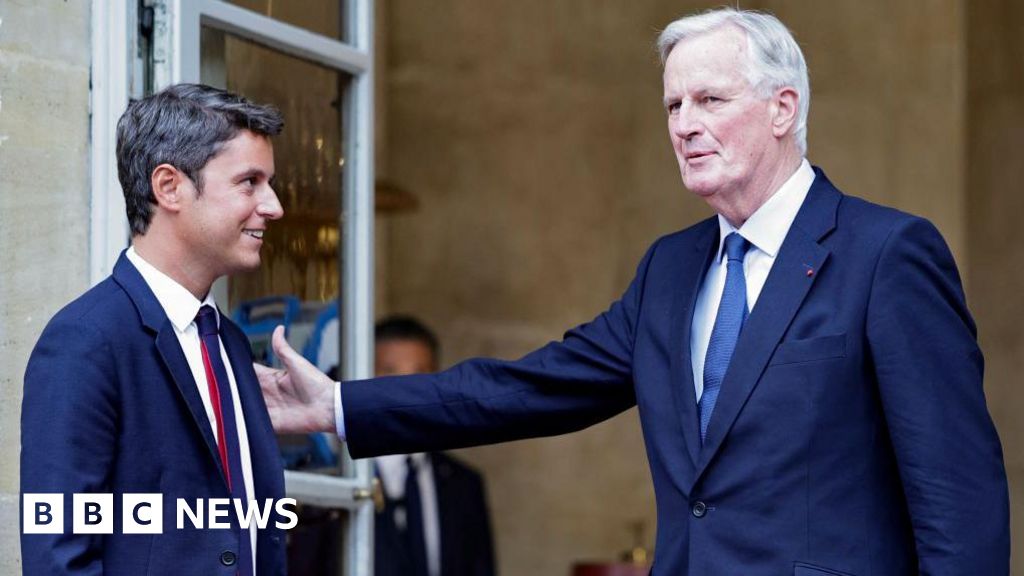spoiler
French President Emmanuel Macron has named Michel Barnier as prime minister almost two months after France’s snap elections ended in political deadlock.
Mr Barnier, 73, is the EU’s former chief Brexit negotiator and led talks with the UK government between 2016 and 2019.
A veteran of the right-wing Republicans (LR) party, he has had a long political career and filled various senior posts, both in France and within the EU.
He will now have to form a government that will need to survive a National Assembly divided into three big political blocs, with none able to form a clear majority.
Three years ago Mr Barnier said he wanted to take on President Macron for the French presidency, saying he wanted to limit and take control of immigration. He eventually failed to be the selected as a candidate by his party.
Known in France as Monsieur Brexit, Mr Barnier will be France’s oldest prime minister since the Fifth Republic came into being in 1958.
He is set to succeed Gabriel Attal, France’s youngest ever prime minister, who President Macron first appointed prime minister in early 2024 and who has stayed in post as caretaker since July.
It has taken President Macron 60 days to make up his mind on choosing a prime minister, having called a “political truce” during the Paris Olympics.
In the past few days he has interviewed several potential candidates for the job, but his task was complicated by the need to come up with a name who would not lose a vote of confidence on their first appearance in the National Assembly.
The Elysée Palace said Mr Barnier’s appointment had come after an unprecedented period of consultation, and that Mr Macron had ensured that the prime minister and future government would offer the greatest possible stability and the broadest possible unity.
Mr Barnier had been given the task of forming a unifying government “in the service of the country and the French people”, the presidency stressed.
However, Mr Macron’s choice of prime minister has already caused discontent within the the left-wing New Popular Front (NFP), which won the most seats in the July snap election and whose own candidate for prime minister was rejected by the president.
Jean-Luc Mélenchon, the leader of the radical France Unbowed (LFI) - the biggest of the four parties that make up NFP - reacted angrily. The election had been “stolen from the French people”, he claimed.
Instead of coming from the the alliance that came first on 7 July, he complained that the prime minister would be “a member of a party that came last at the elections.”
“This is now essentially a Macron-Le Pen government,” said Mr Mélenchon, referring to the leader of the far-right National Rally (RN).
He then called for people to join a left-wing protest against Mr Macron’s decision planned for Saturday.
Jordan Bardella, the young president of the RN was more measured in his response. Writing on X, he said his party’s prime demand was respecting 11 million RN voters.
He made clear that Mr Barnier would be judged on his words, his actions and his decisions on France’s next budget, which has to be put before parliament by 1 October.
He cited the cost of living, security and immigration as major emergencies for the French people, adding that “we hold all means of political action in reserve if this is not the case in the coming weeks”.
 6·4 months ago
6·4 months ago


